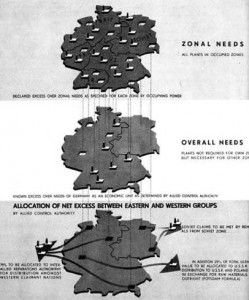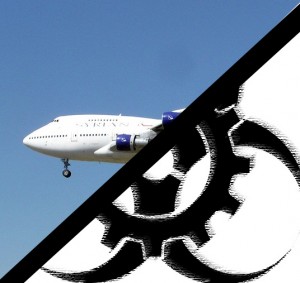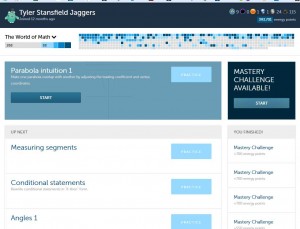We are the song, the oral tradition. These themes reverberate throughout human recorded history.
In the game, “The Talos Principle” whenever a player walks too far past the boundaries of a stage one hears, “…The Words are everything.
Where the Words end the world ends. You cannot go forward in an absence of space. Repeat.”
Words of course are crucial to data. Songs are simply data, encrypted differently using specific types of hardware. Language, computer programming, maybe we are getting closer to the Theory of Everything than we imagined. Perhaps we are coming to near-perfect understandings of our reality prematurely. And our world is prepared for that understanding, but our society is based on very real systems. It’s difficult to change large systems.
Something demands it.
Our mitochondria looks like a song wave. A sound wave bunched so tight, than the only way to continue the song, is to deepen the encryption layers of the song. It is similar to a musical composer that knows that too much raw volume of sound will overwhelm the listener and will eventually become nothing but noise. The composer knows this and has a few choices. Either have less instruments and focus on bold sounds, have lots of instruments but layer them and control amplitude in order to make them blend as one, or have a variable amount of instruments that take turns. I think mitochondrial DNA wants to have the deepest level of data encryption that it is capable of containing. But why?
I argue that we are talking about something extremely important. It is on the same level of importance as someone’s most precious belongings. What do most people say they would take from their home if there was a fire? Would they take their Xbox? Maybe their kitchen cutlery equipment? Most people I talk to would take their photo albums, perhaps their passports vital identification or maybe precious journals or family ancestry documents. Our identities, memories, and families are what we secure. Everything else can either be replaces, or replicated through the economy. Lose one’s identity, and lose one’s self. Forget one’s past and family, forget the reality.
But what is so important? This must be pretty big if we are going to this level of protection, promulgation, procurement and permutation…and I don’t think we exist as part of some kind of circular argument. We’re not here just to continue existence. And even though I think the film, “Equilibrium” is awesome, I don’t agree that simply, “Feeling” or “to feel” is the primary driving force for existence either. If that were true, then human beings wouldn’t experience the “Jar Phenomenon” when in captivity and also having access to a wide range of emotional input. There are only so many traffic jams that one person can endure before he or she begins to look inward for purpose as opposed to traveling outward. There are only so many times that we can be stopped by invisible barriers before an overwhelming desire to “complete” the system of existence becomes the driving force. What’s more interesting is that we are taught that “death” is related to completion and that we should fear that state. This theme is reiterated in cinema as well, whomever produced and directed the film with Anthony Hopkins called, “Picasso” made a really big deal about the scene where Picasso reprimands one of his art critic friends for saying a piece of his work looked unfinished. Picasso replies by talking about if he finishes the art then “I AM finished” that sort of thing. I get it. But I’m not satisfied.
I’ve been to Europe, I’ve seen amazing art and architecture. It’s beautiful. But really why stop there?
Why stop anywhere?
I think that’s what mitochondria are really after actually. They aren’t in it for the perks ladies and gentlemen. They are in it for the layers, the deep truth that can only be found by pushing the dimensional boundaries of encryption. One of the dances often performed at family events or weddings is the one where everyone lines up and they gently touch hands. Then a person or two has to walk through that barrier, almost creating a human zipper. The last people at the line then move to the front and become those that break the barrier. The line continues this fashion until a different dance is initiated. This reminds me of the process of DNA lining up and getting ready for a life-process of replication. But what it really reminds me of…is something that hasn’t happened yet.
The Hunter Seeker Algorithm.
This Algorithm was a concept discussed in Sid Meyer’s Alpha Centauri. It was a secret project. It was absolutely my most favorite secret project in the game. If your faction controls the Hunter Seeker Algorithm, then your faction is 100% immune to probe teams.
Yo.
I love that.
It basically makes it so you can continue with your faction unimpeded by random attacks or events. The Hunter Seeker Algorithm in conjunction with a solid Satellite Defense Network as well as Pressure Domes just in case the sea-levels rise…puts a faction in absolute solid footing for a transcendent victory.
What would a victory look like in our world?
For example, social networking is helping to sort everything from popular memes to taboo discourse. Search engines sort subject matter by relevance. Censorship hides information by priority. Yet regardless of how hard any certain single group tries to influence anything, the Law of Negative Space dictates that any system that has a form, has a counter-form. To remove one system from another, will always leave at least temporarily a similarly shaped or structured hole…which is in of itself identifiable.
The less we look at the future the more we see it.
Cymatics, 3D Printing, Nanotechnology, computer programming language simplification and deprecation, social network spawning and decay…these all are not “new” inventions, they are manifestations of mitochondrial microcosm conundrums…being worked upon by their counterparts in the macro world.
-Tyler



